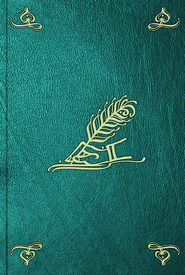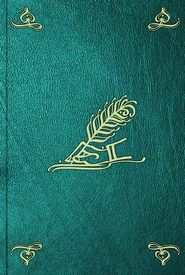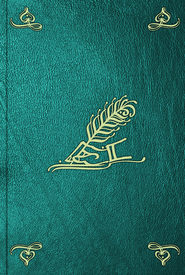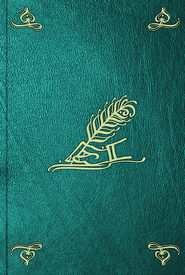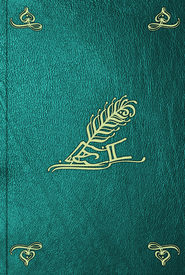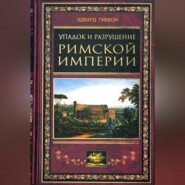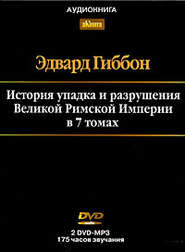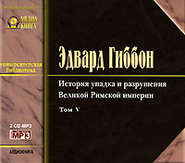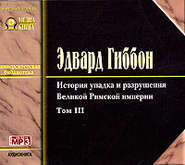По всем вопросам обращайтесь на: info@litportal.ru
(©) 2003-2025.
✖
Private Letters of Edward Gibbon (1753-1794) Volume 2 (of 2)
Настройки чтения
Размер шрифта
Высота строк
Поля
Most truly yours,
E. G.
Next Wednesday I conclude my forty-fifth year, and in spite of the changes of Kings and Ministers, I am very glad that I was born.
439.
To his Stepmother
Bentinck Street, May 29th, 1782.
Dear Madam,
From the very strong expressions of anxious expectationand frequent disappointments, I must think that I am much more guilty than I conceived myself to be on account of my silence. Your apparent indulgence had taught me to believe that you were accustomed to my faults, that you kindly forgave them, and that without the aid of the pen or the post your own heart would inform you of the sentiments of mine. Since my last letter nothing has happened, indeed nothing can happen to affect my situation: in the midst of a plague (such is the present influenza) my health and spirits are perfectly good, and in that tranquil state Saturdays and Mondays pass away without waking me from my gentle slumber. Even my curiosity is not excited, as I have frequent opportunities of hearing circumstantial and impartial accounts of the only object that interests me at Bath.
You ask with some anxiety when you may hope to see me. I know not what to say. Though I always foresee and recollect with heartfelt satisfaction the time which I spend at the Belvidere, yet the convenient season of my visit seems to retire before me. Public events have immoderately protracted the present session of Parliament; it will certainly continue the whole of June and a considerable part of July, and as it was my intention to attend it to the last, I began to think that you would excuse me if I delayed my journey (which would suit me far better) till the beginning of Autumn. But if you have any particular reasons that make you wish to see me sooner, say it in ten lines, and I will set off in ten days. I rejoyce in every subject of your joy both private and public, and I am better pleased to hear that you are free from pain than that Rodney has destroyed a French fleet.[14 - On April 12, 1782, Admiral Sir George Rodney "broke the line," and defeated the French under the Comte de Grasse in the West Indies, the French Admiral and his flagship the Ville de Paris, the largest ship afloat and the present of the city of Paris to Louis XVI., being taken. "The late Ministry are thus robbed of a victory that ought to have been theirs; but the mob do not look into the almanac" (Walpole to Sir H. Mann, May 18, 1782).] Alas! had he done it two months sooner our poor administration would have stood. Every person of every party is provoked with our new Governors for taking the truncheon from the hand of a victorious Admiral, in whose place they have sent a Commander without experience or abilities.[15 - Rodney was superseded by Admiral Pigot, who was one of the Lords of the Admiralty in the new administration.] To-morrow they will be exposed to a small fire in the H. of C. on that popular topic. Adieu, Dear Madam, in this sickly season all my acquaintance (masters, mistresses and servants) are laid up except young Mrs. Porten and myself.
I am
Most truly yours,
E. G.
440.
To his Stepmother
July 3rd, 1782.
Dear Madam,
DEATH OF LORD ROCKINGHAM.
*I hope you have not had a moment's uneasiness about the delay of my Midsummer letter. Whatever may happen, you may rest fully secure, that the materials of it shall always be found. But on this occasion I have missed four or five posts; postponing, as usual, from morning to the evening bell, which now rings, till it has occurred to me, that it might not be amiss to inclose the two essential lines, if I only added that the Influenza has been known to me only by the report of others. Lord Rockingham[16 - The Marquis of Rockingham died July 2, 1782, aged fifty-two.] is at last dead; a good man, though a feeble minister: his successor is not yet named, and divisions in the Cabinet are suspected. If Lord Shelburne should be the Man, as I think he will, the friends of his predecessor will quarrel with him before Christmas. At all events, I foresee much tumult and strong opposition, from which I should be very glad to extricate myself, by quitting the H. of C. with honour and without loss. Whatever you may hear, I believe there is not the least intention of dissolving Parliament, which would indeed be a rash and dangerous measure.
I hope you like Mr. Hayley's poem;[17 - The poem to which Gibbon alludes is the Essay on Epic Poetry in five Epistles to the Rev. Mr. Mason (London, 1782). Hayley's mother was Mary Yates (1718-1775), who married Thomas Hayley in 1740, and died in 1775. The lines to which Gibbon alludes occur in the fourth epistle (ll. 439 to end)."Nature, who deck'd thy form with Beauty's flowers,Exhausted on thy soul her finer powers;Taught it with all her energy to feelLove's melting softness, Friendship's fervid zeal,The generous purpose, and the active thought,With Charity's diffusive spirit fraught;There all the best of mental gifts she plac'd,Vigor of judgment, purity of Taste,Superior parts, without their spleenful leaven,Kindness to Earth, and confidence in Heaven."] he rises with his subject, and since Pope's death, I am satisfied that England has not seen so happy a mixture of strong sense and flowing numbers. Are you not delighted with his address to his mother? I understand that She was, in plain prose, every thing that he speaks her in verse. This summer I shall stay in town, and work at my trade, till I make some Holydays for my Bath excursion. Lady S. is at Brighton, and he lives under tents, like the wild Arabs; so that my Country house is shut up. Kitty Porten is gone on a fortnight's frolick to lodge at Windsor.
I am, Dear Madam,
Ever yours.
441.
To Lord Sheffield, at Coxheath Camp
Saturday night, Bentinck Street, 1782.
*I sympathise with your fatigues; yet Alexander, Hannibal, &c. have suffered hardships almost equal to yours. At such a moment it is disagreeable (besides laziness) to write, because every hour teems with a new lye. As yet, however, only Charles[18 - On the death of Lord Rockingham, Fox endeavoured to force on the King, as the new Premier, the Duke of Portland, "a dull man, but a convenient block to hang Whigs on." Failing in his attempt, he resigned.] has formally resigned; but Lord John, Burke, Keppel, Lord Althorpe, &c. certainly follow; your Commander-in-chief stays, and they are furious against the Duke of Richmond.*[19 - Lord John Cavendish and Lord Althorpe, two of the Lords of the Treasury, Burke, Paymaster-General, Lord Duncannon and the Hon. John Townshend, Lords of the Admiralty, retired with Fox. Lord Keppel and General Conway continued in office; also the Duke of Richmond, Fox's uncle.] Why will he not go out with Fox? said somebody; because, replies a friend, he does not like to go out with any man. *In short, three months of prosperity has dissolved a Phalanx, which had stood ten years' adversity. Next Tuesday, Fox will give his reasons, and possibly be encountered by Pitt, the new Secretary, or Chancellor, at three and twenty. The day will be rare and curious, and, if I were a light Dragoon, I would take a gallop on purpose to Westminster. Adieu. I hear the bell. How could I write before I knew where you dwelt?*
E. G.
442.
To Lord Sheffield
July 10th, 1782.
LORD SHELBURNE'S MINISTRY.
Authentic List.[20 - Parliament was prorogued on July 11 till December 5, 1782. Gibbon's list of the new Ministry is accurate, except that the Lord Advocate, the Hon. Henry Dundas (afterwards Lord Melville), became Treasurer of the Navy, vice Colonel Isaac Barré, who became Paymaster of the Forces. "Places are cheaper than mackerel," writes Lord Loughborough to his cousin William Eden, July 4, 1782 (Lord Auckland's Journal and Correspondence, vol. i. p. 2).]
Yesterday was a rare day.
Vera Cop,
E. G.
443.
To Lord Sheffield
July 23rd, 1782.
The papers say you are at Coxheath. Write. Bad news from India; I am afraid that we have lost a ship and that Hyder has won a battle.[21 - Gibbon probably refers to the defeat of Colonel Brathwaite in the Tanjore district (February, 1782), by Tippoo, Hyder's son, and M. Lally.] None, therefore good, from Lord Howe since every day fortifies him.[22 - The combined French and Spanish fleets were collected in the Channel, intending to prevent the relief of Gibraltar and effect a junction with the Dutch. Lord Howe had already driven the Dutch into the Texel, and he now sailed to protect the Jamaica convoy, and watch the enemy, single ships being sent to reinforce him as they could be made ready. On September 11, Lord Howe sailed with a powerful fleet for the relief of Gibraltar, and landed his troops and stores October 13-18.] Within this last fortnight prodigious exertions by the Admiralty, till then they were fast asleep. The Advocate arrived last night, but has not yet accepted. To-morrow I visit Eden at his farm near Bromley. If you and my Lady could give me a meeting in a house, I would run down even for three or four days: but I do not admire canvass. Adieu.
E. G.
Aunt Hester seems to want some intelligence.
444.
To his Stepmother
August 10th, 1782.
Dear Madam,
A person whom you would scarcely suspect, General Conway as commander in Chief, is the real author of my silence, which as usual has insensibly lasted far beyond my first intentions. Lord Sheffield is a slave, his master's resolutions are obscure and fluctuating, and I have waited from post to post till he could mark some week for our meeting in Sussex, which might leave the rest of my time at liberty for my Bath expedition. Though I can obtain no satisfaction from him, I must not suffer another Monday to slide away without saying that I am alive, well, and unless the Arab should seize (he has no choice) that particular moment, in full expectation of gratifying my wishes by a visit to Bath about the 20th of next month. I flatter myself that I shall find you not affected by the long winter which we still feel, though a friend of mine, an Astronomer, assured me that yesterday was the last of the dog days.
It is impossible to know what to say of our public affairs, and the most knowing are only such by the knowledge of their ignorance. The next session of Parliament will be the warmest and most irregular battle that has ever been fought in that place, and each man (except some leaders) is at the moment uncertain of the party which inclination, opinion, or connection will prompt him to embrace. You see that Mr. Eliot, or at least his family, are become courtiers; his son (a very unmeaning youth) is a Lord of the Treasury, an office which was formerly the reward of twenty years' able and faithful service. The Minister has not lost, for he never possessed, the public confidence, and Lord N[orth], if he chuses to act, has the balance of the country in his hands. A propos of the Eliots they are still in town. We meet seldom, but with the utmost propriety and equal regard.
IMMERSED IN THE ROMAN EMPIRE.
My private life is a gentle and not unpleasing continuation of my old labours, and I am again involved, as I shall be for some years, in the decline and fall of the Roman Empire. Some fame, some profit, and the assurance of daily amusement encourage me to persist. I am glad you are pleased with Mr. Hayley's poem; perhaps he might have been less diffuse, but his sense is fine and his verse is harmonious. – Mrs. Porten is just returned from a six weeks' excursion in lodgings at Windsor, which she enjoyed (the Terrace, the Air, and the Royal family) with all the spirit of youth. Her elder brother is quiet in his new employment and apartments in Kensington palace. I envy him the latter, and had there been no Revolution I might have obtained a similar advantage. At present I am on the ground, but the weather may change, and compared with recent darkness, the clouds are beginning to break away.
I am, Dear Madam,
Ever yours,
E. G.
445.
To his Stepmother
Bentinck Street, Sept. 14, 1782.
E. G.
Next Wednesday I conclude my forty-fifth year, and in spite of the changes of Kings and Ministers, I am very glad that I was born.
439.
To his Stepmother
Bentinck Street, May 29th, 1782.
Dear Madam,
From the very strong expressions of anxious expectationand frequent disappointments, I must think that I am much more guilty than I conceived myself to be on account of my silence. Your apparent indulgence had taught me to believe that you were accustomed to my faults, that you kindly forgave them, and that without the aid of the pen or the post your own heart would inform you of the sentiments of mine. Since my last letter nothing has happened, indeed nothing can happen to affect my situation: in the midst of a plague (such is the present influenza) my health and spirits are perfectly good, and in that tranquil state Saturdays and Mondays pass away without waking me from my gentle slumber. Even my curiosity is not excited, as I have frequent opportunities of hearing circumstantial and impartial accounts of the only object that interests me at Bath.
You ask with some anxiety when you may hope to see me. I know not what to say. Though I always foresee and recollect with heartfelt satisfaction the time which I spend at the Belvidere, yet the convenient season of my visit seems to retire before me. Public events have immoderately protracted the present session of Parliament; it will certainly continue the whole of June and a considerable part of July, and as it was my intention to attend it to the last, I began to think that you would excuse me if I delayed my journey (which would suit me far better) till the beginning of Autumn. But if you have any particular reasons that make you wish to see me sooner, say it in ten lines, and I will set off in ten days. I rejoyce in every subject of your joy both private and public, and I am better pleased to hear that you are free from pain than that Rodney has destroyed a French fleet.[14 - On April 12, 1782, Admiral Sir George Rodney "broke the line," and defeated the French under the Comte de Grasse in the West Indies, the French Admiral and his flagship the Ville de Paris, the largest ship afloat and the present of the city of Paris to Louis XVI., being taken. "The late Ministry are thus robbed of a victory that ought to have been theirs; but the mob do not look into the almanac" (Walpole to Sir H. Mann, May 18, 1782).] Alas! had he done it two months sooner our poor administration would have stood. Every person of every party is provoked with our new Governors for taking the truncheon from the hand of a victorious Admiral, in whose place they have sent a Commander without experience or abilities.[15 - Rodney was superseded by Admiral Pigot, who was one of the Lords of the Admiralty in the new administration.] To-morrow they will be exposed to a small fire in the H. of C. on that popular topic. Adieu, Dear Madam, in this sickly season all my acquaintance (masters, mistresses and servants) are laid up except young Mrs. Porten and myself.
I am
Most truly yours,
E. G.
440.
To his Stepmother
July 3rd, 1782.
Dear Madam,
DEATH OF LORD ROCKINGHAM.
*I hope you have not had a moment's uneasiness about the delay of my Midsummer letter. Whatever may happen, you may rest fully secure, that the materials of it shall always be found. But on this occasion I have missed four or five posts; postponing, as usual, from morning to the evening bell, which now rings, till it has occurred to me, that it might not be amiss to inclose the two essential lines, if I only added that the Influenza has been known to me only by the report of others. Lord Rockingham[16 - The Marquis of Rockingham died July 2, 1782, aged fifty-two.] is at last dead; a good man, though a feeble minister: his successor is not yet named, and divisions in the Cabinet are suspected. If Lord Shelburne should be the Man, as I think he will, the friends of his predecessor will quarrel with him before Christmas. At all events, I foresee much tumult and strong opposition, from which I should be very glad to extricate myself, by quitting the H. of C. with honour and without loss. Whatever you may hear, I believe there is not the least intention of dissolving Parliament, which would indeed be a rash and dangerous measure.
I hope you like Mr. Hayley's poem;[17 - The poem to which Gibbon alludes is the Essay on Epic Poetry in five Epistles to the Rev. Mr. Mason (London, 1782). Hayley's mother was Mary Yates (1718-1775), who married Thomas Hayley in 1740, and died in 1775. The lines to which Gibbon alludes occur in the fourth epistle (ll. 439 to end)."Nature, who deck'd thy form with Beauty's flowers,Exhausted on thy soul her finer powers;Taught it with all her energy to feelLove's melting softness, Friendship's fervid zeal,The generous purpose, and the active thought,With Charity's diffusive spirit fraught;There all the best of mental gifts she plac'd,Vigor of judgment, purity of Taste,Superior parts, without their spleenful leaven,Kindness to Earth, and confidence in Heaven."] he rises with his subject, and since Pope's death, I am satisfied that England has not seen so happy a mixture of strong sense and flowing numbers. Are you not delighted with his address to his mother? I understand that She was, in plain prose, every thing that he speaks her in verse. This summer I shall stay in town, and work at my trade, till I make some Holydays for my Bath excursion. Lady S. is at Brighton, and he lives under tents, like the wild Arabs; so that my Country house is shut up. Kitty Porten is gone on a fortnight's frolick to lodge at Windsor.
I am, Dear Madam,
Ever yours.
441.
To Lord Sheffield, at Coxheath Camp
Saturday night, Bentinck Street, 1782.
*I sympathise with your fatigues; yet Alexander, Hannibal, &c. have suffered hardships almost equal to yours. At such a moment it is disagreeable (besides laziness) to write, because every hour teems with a new lye. As yet, however, only Charles[18 - On the death of Lord Rockingham, Fox endeavoured to force on the King, as the new Premier, the Duke of Portland, "a dull man, but a convenient block to hang Whigs on." Failing in his attempt, he resigned.] has formally resigned; but Lord John, Burke, Keppel, Lord Althorpe, &c. certainly follow; your Commander-in-chief stays, and they are furious against the Duke of Richmond.*[19 - Lord John Cavendish and Lord Althorpe, two of the Lords of the Treasury, Burke, Paymaster-General, Lord Duncannon and the Hon. John Townshend, Lords of the Admiralty, retired with Fox. Lord Keppel and General Conway continued in office; also the Duke of Richmond, Fox's uncle.] Why will he not go out with Fox? said somebody; because, replies a friend, he does not like to go out with any man. *In short, three months of prosperity has dissolved a Phalanx, which had stood ten years' adversity. Next Tuesday, Fox will give his reasons, and possibly be encountered by Pitt, the new Secretary, or Chancellor, at three and twenty. The day will be rare and curious, and, if I were a light Dragoon, I would take a gallop on purpose to Westminster. Adieu. I hear the bell. How could I write before I knew where you dwelt?*
E. G.
442.
To Lord Sheffield
July 10th, 1782.
LORD SHELBURNE'S MINISTRY.
Authentic List.[20 - Parliament was prorogued on July 11 till December 5, 1782. Gibbon's list of the new Ministry is accurate, except that the Lord Advocate, the Hon. Henry Dundas (afterwards Lord Melville), became Treasurer of the Navy, vice Colonel Isaac Barré, who became Paymaster of the Forces. "Places are cheaper than mackerel," writes Lord Loughborough to his cousin William Eden, July 4, 1782 (Lord Auckland's Journal and Correspondence, vol. i. p. 2).]
Yesterday was a rare day.
Vera Cop,
E. G.
443.
To Lord Sheffield
July 23rd, 1782.
The papers say you are at Coxheath. Write. Bad news from India; I am afraid that we have lost a ship and that Hyder has won a battle.[21 - Gibbon probably refers to the defeat of Colonel Brathwaite in the Tanjore district (February, 1782), by Tippoo, Hyder's son, and M. Lally.] None, therefore good, from Lord Howe since every day fortifies him.[22 - The combined French and Spanish fleets were collected in the Channel, intending to prevent the relief of Gibraltar and effect a junction with the Dutch. Lord Howe had already driven the Dutch into the Texel, and he now sailed to protect the Jamaica convoy, and watch the enemy, single ships being sent to reinforce him as they could be made ready. On September 11, Lord Howe sailed with a powerful fleet for the relief of Gibraltar, and landed his troops and stores October 13-18.] Within this last fortnight prodigious exertions by the Admiralty, till then they were fast asleep. The Advocate arrived last night, but has not yet accepted. To-morrow I visit Eden at his farm near Bromley. If you and my Lady could give me a meeting in a house, I would run down even for three or four days: but I do not admire canvass. Adieu.
E. G.
Aunt Hester seems to want some intelligence.
444.
To his Stepmother
August 10th, 1782.
Dear Madam,
A person whom you would scarcely suspect, General Conway as commander in Chief, is the real author of my silence, which as usual has insensibly lasted far beyond my first intentions. Lord Sheffield is a slave, his master's resolutions are obscure and fluctuating, and I have waited from post to post till he could mark some week for our meeting in Sussex, which might leave the rest of my time at liberty for my Bath expedition. Though I can obtain no satisfaction from him, I must not suffer another Monday to slide away without saying that I am alive, well, and unless the Arab should seize (he has no choice) that particular moment, in full expectation of gratifying my wishes by a visit to Bath about the 20th of next month. I flatter myself that I shall find you not affected by the long winter which we still feel, though a friend of mine, an Astronomer, assured me that yesterday was the last of the dog days.
It is impossible to know what to say of our public affairs, and the most knowing are only such by the knowledge of their ignorance. The next session of Parliament will be the warmest and most irregular battle that has ever been fought in that place, and each man (except some leaders) is at the moment uncertain of the party which inclination, opinion, or connection will prompt him to embrace. You see that Mr. Eliot, or at least his family, are become courtiers; his son (a very unmeaning youth) is a Lord of the Treasury, an office which was formerly the reward of twenty years' able and faithful service. The Minister has not lost, for he never possessed, the public confidence, and Lord N[orth], if he chuses to act, has the balance of the country in his hands. A propos of the Eliots they are still in town. We meet seldom, but with the utmost propriety and equal regard.
IMMERSED IN THE ROMAN EMPIRE.
My private life is a gentle and not unpleasing continuation of my old labours, and I am again involved, as I shall be for some years, in the decline and fall of the Roman Empire. Some fame, some profit, and the assurance of daily amusement encourage me to persist. I am glad you are pleased with Mr. Hayley's poem; perhaps he might have been less diffuse, but his sense is fine and his verse is harmonious. – Mrs. Porten is just returned from a six weeks' excursion in lodgings at Windsor, which she enjoyed (the Terrace, the Air, and the Royal family) with all the spirit of youth. Her elder brother is quiet in his new employment and apartments in Kensington palace. I envy him the latter, and had there been no Revolution I might have obtained a similar advantage. At present I am on the ground, but the weather may change, and compared with recent darkness, the clouds are beginning to break away.
I am, Dear Madam,
Ever yours,
E. G.
445.
To his Stepmother
Bentinck Street, Sept. 14, 1782.







